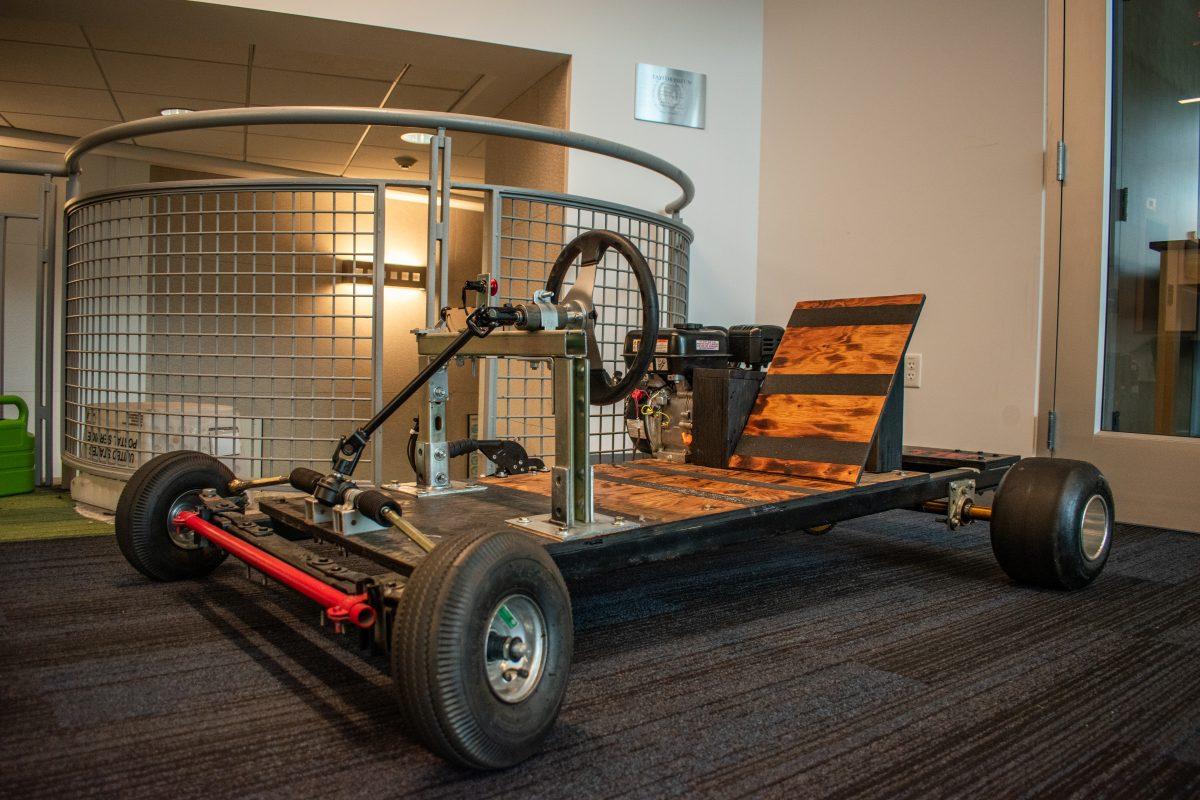
Eli Schotland, Staff Writer
December 8, 2023
For many years, Nobles seniors were able to drop a class of their choice, so long as the class was not a graduation requirement, and complete a senior project instead. Students were allowed a tremendous amount of autonomy in the selection and scope of their senior project, and those who chose to do a senior project were assigned an advisor, who would work to ensure the senior made a plan to complete their project in a timely manner. As the years went on, the senior project transformed from a respected elective to an excuse to drop a class. The number of seniors who chose to do a senior project skyrocketed, and it was difficult to find advisors for all of them. As a result, the quality and legitimacy of many senior projects declined, and most students paid only lip service to the process. Many seniors used the free time allotted to them from dropping a class to play spikeball or hacky sack out on the Beach, rather than committing themselves to the development of their project. The administration, refusing to allow this to continue, eliminated senior projects, effective this year. But was that the right decision?
A blanket ban on senior projects was perhaps a hasty move. While many seniors simply frittered their time away and made a mockery of the system, other Class I students were extremely devoted to their projects, and physical representations of their hard work are scattered around the school. From race cars to art projects, from handwritten plays to hand-carved furniture, these testaments to the positives of the senior project cannot and should not be ignored. Now, the administration does have a point. Too many students abused the senior project, and Nobles must maintain its reputation as a school with rigorous academics. Allowing seniors to drop a class, and then not provide similarly challenging compensation, would not be in line with this mission. Seniors do spend a great deal of time relaxing, perhaps too much in the eyes of some. Giving Class I more free time might exacerbate this issue. Then what is the solution?
A selective application process may provide a middle ground between disallowing senior projects entirely and permitting anyone who wants to drop a class to do so without an increase in workload. There was once a simple Google form to fill out for application, but it was not very rigorous or selective. Here is how a better application process could look: a rising senior wishing to pursue a senior project would first need approval from their advisor and college counselor. Then, they would fill out the application itself. The application could ask questions about the senior’s motivation, their project’s goal, and how they plan to accomplish this goal over time. This challenging application should serve to weed out some of the less serious applicants. Furthermore, setting a maximum number of slots will hopefully limit the demand for advisors, and make sure that each advisor can provide as much help as possible to a more limited pool of people.
Of course, if the senior project is made more exclusive, some deserving students may not be able to take part. However, the alternative is that no deserving students get to participate at all. In my opinion, that is a preferable trade. Right now, some Class I students are still taking part in their own senior projects, just without the same guidance or the free period that comes with the school-approved version. These seniors are facing increased workload, especially as they apply to college.
For the wider student body, it is important to understand why this is an important issue. Many Nobles students have talents they deserve to express and for which they deserve public recognition. For some students, assembly is the place where they can show everyone what they can do. That is a very special opportunity, and the school’s understanding of that opportunity is reflected in how strongly the administration values assembly. But for students whose talents do not lie on the field, in the theatre, or on the assembly stage, they have little other recourse. Many former students found their refuge in the senior project and the consequent satisfaction of knowing that they had accomplished something of value. If you are a student with an esoteric skill or eccentric ability, participation in a senior project should be something you aspire to. It can be fun, it can be challenging, and it can be a great learning experience. Moving forward, I advise the administration to revise their decision and consider the merits of my argument. One day, either by my senior year or far in the future, I would love to see the senior project re-implemented into the curriculum.
(Photo Credit: Avery Winder)